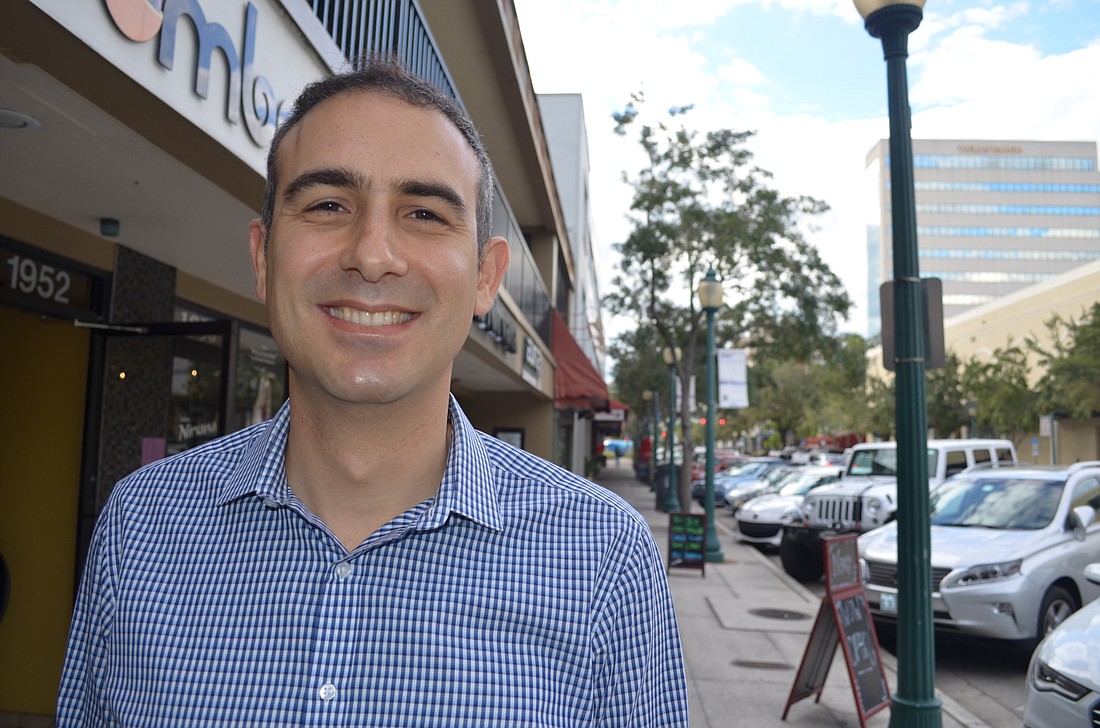- May 3, 2025
-
-
Loading

Loading

Since making its public debut in September, the resident activist group STOP! has seen neighborhoods throughout the city embrace its agenda.
Already, eight neighborhoods from Bird Key to Central Cocoanut have officially endorsed the group’s work. STOP! is focused on changing city regulations regarding development, traffic, tree preservation and pedestrian accessibility.
It’s still early, but STOP! steering committee member Kate Lowman is confident the group can make a difference on policy. Specifically, the group is optimistic it can thwart any effort to expand the administrative-approval process used for developments in the downtown core.
“We really think if we hold hands and just say ‘no,’ that we can probably stop that,” Lowman said.
Whether that’s a good thing depends on whom you ask.
STOP! is focusing its efforts on one aspect of how development works in the city. The target of its ire is administrative approval, the process that allows city staff to determine whether proposed developments meet requirements outlined in the zoning code.
In addition to opposing the expansion of administrative approval, the group is calling for a return to the previous review process downtown. That required a public hearing in front of the Planning Board and City Commission approval for most developments. Their refrain is simple: End the experiment.
“Go back to the old system that was in place 13 years ago,” Lowman said. “It’s tried and tested. It’s still in use in the neighborhoods.”
Andrew Georgiadis, an urban planner who was involved with writing the city’s form-based code before leaving for his own private venture, said STOP! has sparked a nationwide conversation. New Urbanists — planners who ascribe to a philosophy emphasizing walkable, mixed-use neighborhoods — are revisiting what, exactly, community input on specific projects should entail under a form-based code.
But planners aren’t writing off administrative approval entirely. Georgiadis said a lengthier public review process could have a chilling effect on development. He also said public input could steer projects in the wrong direction.
“I think it’s wonderful to get the collective wisdom the public can offer on a project,” he said. “My hope is the public hearing process doesn’t actually open the door to making projects less dense and less urban than what the best practices tell us they should be.”
As the code is being drafted, residents have suggested higher density or commercial projects aren’t appropriate for an area comprising mainly single-family houses. Georgiadis said this is backwards: The goal should be creating complete neighborhoods with a mix of housing types that allow residents to walk to stores to purchase everyday goods.
This encourages developers to build more affordable housing and can reduce the number of cars on the road. Allowing only single-family housing doesn’t.
“We think less density is better, but it’s really not in the long run,” Georgiadis said. “You need to trust the people who are trained in the built environment to know that, in certain cases.”
Despite the pushback from New Urbanists — among them Karin Murphy, author of the forthcoming citywide form-based code — STOP! is emboldened by the positive response it has gotten from Sarasota residents.
“If that hadn’t happened, I think we’d say, ‘OK, that’s a moot point,’” said Jennifer Ahearn-Koch, a STOP! steering committee member. “But the community has really reacted en force.”
In addition to such large-scale projects such as Vue Sarasota Bay, Ahearn-Koch said it’s essential to offer residents an opportunity to comment on smaller projects like a 7-Eleven, which she characterized as “high intensity.” The group is unwavering in its belief that additional public input on proposed developments in the city isn’t an unreasonable request.
“You don’t get to remove a cog in the wheel of progress,” Ahearn-Koch said of the public hearing process. “You get three minutes to talk.”
Some residents are exploring a middle ground between the two development-review processes. Patrick Gannon, president of the Downtown Sarasota Condo Association, suggested a system in which residents could petition a developer to hold a public workshop before city staff reviews a project.
Murphy is also considering provisions in the new code that would enhance transparency while maintaining administrative approval. While STOP! remains committed to a firm stance opposing administrative approval, the group takes solace in the knowledge the ongoing dialog is moving in their favored direction.
“I think that’s ultimately a really good thing,” Ahearn-Koch said. “I don’t mind having that conversation further until we get it right.”
STOP! has used the Vue as an example of what happens when the public doesn’t get an opportunity to comment on individual projects. Georgiadis agrees the high-rise project has design issues, but he said those issues could be avoided if the code was properly written.
He said officials tasked with applying and maintaining a form-based code should be focused on the ongoing evolution of New Urbanist principles. Based on his experience, that emphasis hasn’t occurred among city staff.
“They’re excellent, excellent people — but there was an urgent need to plug into the movement at a state and national level,” Georgiadis said.
“There was an urgent need to plug into the movement at a state and national level.” — Andrew Georgiadis
Tim Litchet, the city’s director of Neighborhood and Development Services, said staff has tried to stay apprised on New Urbanism. He said that became more challenging following the elimination of the planning department during the recession.
The city is in the process of hiring a planning director, and Litchet said the planning staff would be focused on best practices for maintaining a form-based code in the future — although a posting for the planning director position makes no mention of form-based codes or New Urbanism.
“If the job description doesn’t specifically say they’re going to have to be a New Urbanist, they’re going to have to be very familiar with that terminology,” Litchet said.